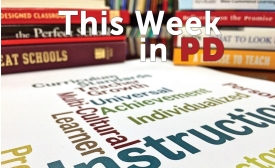aid diplomacy

This week’s PD News headlines explored education and its impacts on public diplomacy, from female empowerment to terrorist prevention.
It was December in northern Syria and the temperature was dropping fast. U.S. special operations forces urgently needed to get blankets to their partners. They turned to a small charity run by Jim Hake, a former venture capitalist. Within eight hours, 200 blankets had arrived, paid for by Hake’s NGO, Spirit of America. [...] And Hake argues, if extremists are relying on private donations to launch terrorist attacks, why can’t private citizens in America donate money to help U.S. forces fighting them? “To prevail, we need all elements of national power — private and public,” Hake said.
Foreign Minister Ravi Karunanayake said 16 countries had rushed relief supplies and medicine to Sri Lanka to assist more than 600,000 people who were driven away from their homes following Friday's monsoon deluge. India and Pakistan have also deployed medical teams on the ground in some of the worst-affected areas, he said. The United Nations has said it will provide water containers, water purification tablets and tarpaulin sheets while the World Health Organisation will support medical teams in affected areas.
World Bank today approved a US$50 million emergency project - Somalia Emergency Drought Response and Recovery Project (SEDRP, the Project) - to scale up the drought response and recovery effort in Somalia. Somalia is facing its worst drought in decades, with over half the population – an estimated 6.7 million people – in need of humanitarian assistance and recovery support. The Project will address the immediate needs of communities affected by the drought as well as supporting early recovery and improved resilience to future shocks.
The U.S. government is auditing a foreign aid program that loaned almost $1 billion to renewable energy projects in Chile – including solar farms in such deep financial trouble that the loans may never be fully repaid, according to people familiar with the matter. [...] OPIC, which aims to advance U.S. interests by lending to overseas business ventures, loaned about $2.5 billion to 32 projects throughout Latin America, in 2013-2014 with over a third of those funds going to Chilean energy projects.
President Donald Trump on Tuesday proposed drastically slashing U.S. foreign aid spending in Mexico and Central America, which are struggling with drug violence, graft and poverty. 2018 Mexican aid of $87.66 million, down more than 45 percent from the 2016 outlay. The budget proposes scrapping most U.S. money for the Mexican military, along with counterterrorism funds and some governance programs. In Guatemala, U.S. aid would drop almost 40 percent from 2016, to $80.66 million, while in Honduras and El Salvador it would fall nearly a third.
Some senators urged the Duterte administration to "think over" its decision to shut out developmental aid from the European Union (EU), considering the fight against poverty and the country's ties with one of its biggest trading partners. Senate Minority Leader Franklin Drilon said on Friday, May 19, that he was "saddened" by the decision, since the EU has been a "reliable trading partner" whose assistance has benefited Filipinos, especially those in poor communities.
The two-day OBOR summit, one of the most eagerly anticipated events in China this year, ended on May 15. Party mouthpieces referred to the meeting as a high-level international conference with far-reaching implications for the whole world. [...] If anything, the summit was marked by three things— big fat cheques, thunderous applause and hype surrounding president Xi Jinping’s “achievements”.[...] XI vowed pledged to provide an extra 60 billion yuan in foreign aid for countries along the economic corridor plus 2 billion yuan in emergency food aid.







